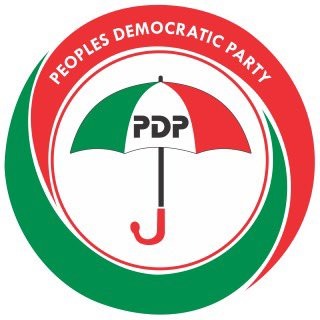Paragraph 1: The Genesis of the Defection and Legal Challenge
The political landscape of Obokun/Oriade Federal Constituency in Osun State witnessed a significant shift when six-term lawmaker, Oluwole Oke, announced his defection from the Peoples Democratic Party (PDP) to the All Progressives Congress (APC). This decision, communicated through a resignation letter dated April 16, 2025, cited consultations with political associates, friends, and family as the driving force behind the move. Oke’s letter, addressed to the PDP chairman in his ward, also included copies for the national and state party chairmen, formally severing his ties with the PDP. In response, the PDP swiftly initiated legal action, filing a suit at the Federal High Court in Abuja to challenge the defection and seek Oke’s removal from office.
Paragraph 2: The PDP’s Legal Argument and Constitutional Basis
The PDP’s legal challenge hinges on Section 68(1)(g) and (2) of the 1999 Constitution of the Federal Republic of Nigeria (as amended). This section stipulates the conditions under which a legislator can defect without losing their seat, namely, a division, merger, or recognized faction within the original party. The PDP contends that none of these conditions existed at the time of Oke’s defection, rendering his move unconstitutional and warranting his removal from the House of Representatives. The party’s lead counsel, Raphael Oyewole, argued that Oke’s continued occupancy of the legislative seat violates the constitutional provision and undermines the democratic process.
Paragraph 3: The Legal Mechanism: Order of Mandamus and Defendants
To enforce the alleged constitutional breach, the PDP sought an order of mandamus from the court. This legal instrument compels a public official to perform a specific duty mandated by law. In this case, the PDP is requesting the court to order the Speaker of the House of Representatives, Tajudeen Abbas, to declare Oke’s seat vacant. The suit, marked FHC/ABJ/CS/1040/2025, names Oke as the first defendant, followed by the Speaker, the Clerk of the National Assembly, and the Independent National Electoral Commission (INEC) as the second, third, and fourth defendants, respectively. This broadens the scope of the legal action to encompass the key figures responsible for managing legislative affairs and electoral processes.
Paragraph 4: Key Legal Questions and Reliefs Sought by the PDP
The originating summons presented to the court includes seven crucial questions for determination, seeking clarification on the interpretation and application of Section 68 of the Constitution in this specific scenario. Central to these questions is whether a lawmaker, like Oke, forfeits their seat upon defecting without a verifiable division, merger, or faction within their original party. Beyond the declaration of vacancy, the PDP seeks a range of reliefs. These include an order directing INEC to commence bye-election proceedings for the constituency and another order compelling the Clerk of the National Assembly to cease all payments of salaries, allowances, and other benefits to Oke.
Paragraph 5: Financial Recoupment and the Principle of Unjust Enrichment
A significant aspect of the PDP’s legal action is the demand for financial recoupment. The party is urging the court to order Oke to refund all salaries, emoluments, benefits, and allowances received from the date of his resignation to the date of judgment. This demand rests on the argument that Oke has been unjustly enriched by occupying a seat he allegedly forfeited through his defection. The PDP argues that allowing Oke to retain these funds would be tantamount to rewarding unconstitutional conduct and would set a dangerous precedent for future defections.
Paragraph 6: Broader Implications and the Future of the Case
This case carries significant implications for the political landscape in Nigeria. The court’s decision will have a bearing on future defections and the interpretation of Section 68 of the Constitution. It will also determine whether the PDP can successfully reclaim the Obokun/Oriade Federal Constituency seat. The court’s deliberations and subsequent judgment will likely set a precedent for similar cases and shape the legal understanding of legislative defections. The case also underscores the broader issue of party discipline and the balance between individual political freedom and party loyalty within Nigeria’s democratic framework. The outcome will undoubtedly be closely watched by political parties, lawmakers, and legal experts alike.














